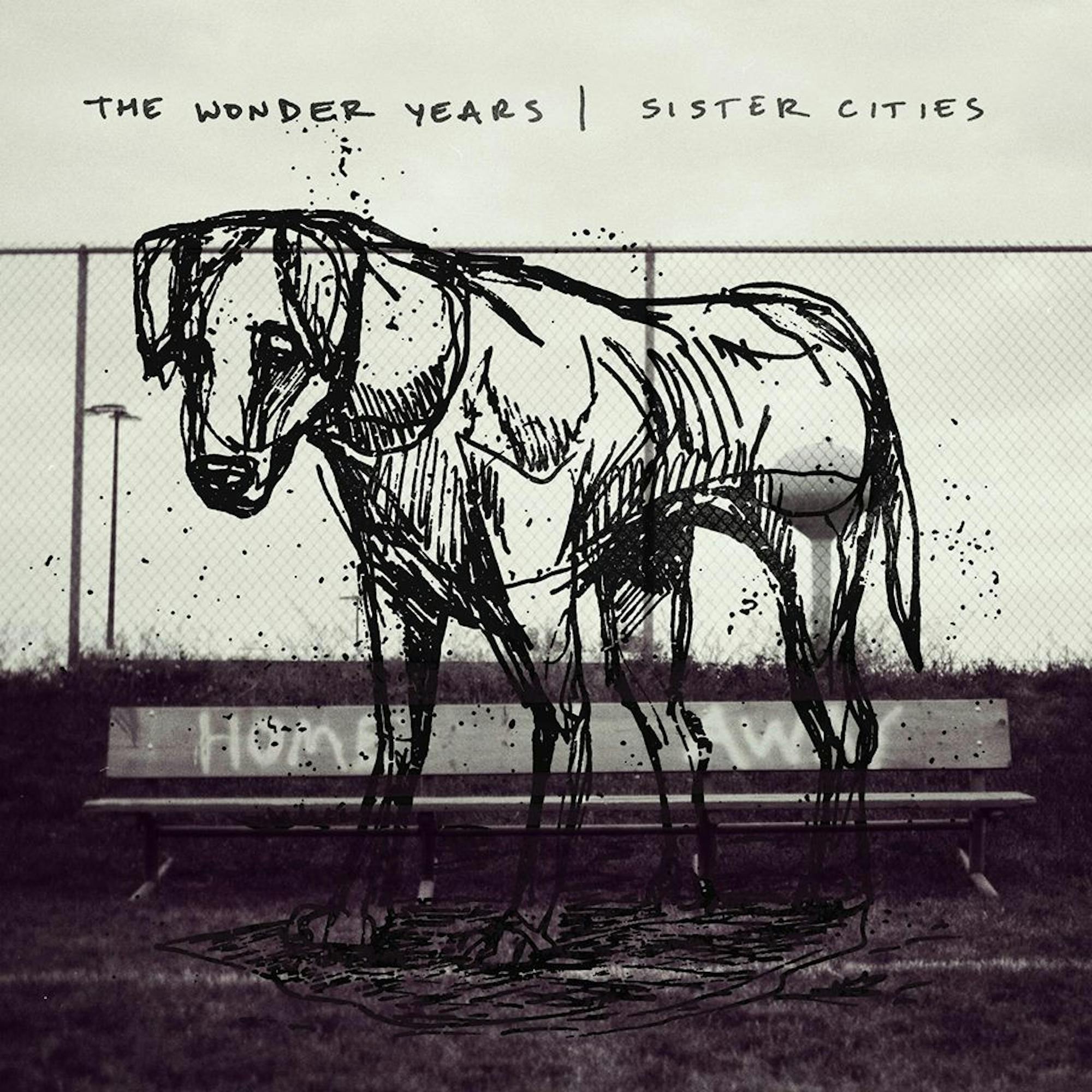“I miss everyone at once. But most of all, I miss the ocean,” is the final line of a new record from The Wonder Years, “Sister Cities” (2018). On its face, the lyric may not appear to be saying much of anything, nor would it flow in a stream of sad Tweets, but the band puts together 11 songs that show you what it truly means to “miss the ocean."
The Wonder Years is one of those exceptional bands that has a unique trait in its discography — it grows with you. Whether you’re a high school student, sifting through college, finding your way in adult life or anything in between, you will relate with each of its records as the band evolves and progresses as you do. With “Sister Cities," the group's most mature record yet, lead singer and lyricist Dan Campbell puts out a piece of art that anyone, at any stage of life, can find deep ties to.
The band wastes no time with the opening track, “Raining in Kyoto,"immediately pouring out a verse that feels as if it’s bubbling up with pulsing drums and plenty of interesting guitar licks to chew on. What’s more important, though, is how Campbell begins this album lyrically.
The song is about Campbell discovering his grandfather’s death as the lead singer boarded a flight to Japan while on tour. Seemingly helpless to mourn the loss, Campbell resorts to honoring him at a Shinto shrine, thousands of miles away from the rest of his family. The song sets a tone for an album that is often dark, but with plenty of light at the end of the tunnel if you’re willing to look for it.
Relatively speaking, “Pyramids of Salt” and “It Must Get Lonely” are a bit of a softer step back from the opening track, though the former boasts one of the most powerful and memorable choruses on the record.“Pyramids of Salt” also features a bit of synth in its backing instrumentals, which is a definitive shift from their previous works.
“Sister Cities," the title track, kicks in with a fun guitar riff and then a heavy bassline.As the lead single of the album, it easily stands as its most catchy, though as a title track its concept is crucial to the record as a whole.
Campbell’s inspiration for the title comes from a plaza in Santiago, Chile that holds a monument for Santiago’s sister cities. Campbell mused about the concept of sister cities, realizing that after touring all across the world, he feels a connection between every place he goes. In short, perhaps every city is a sister city.
This idea is expanded on in the final line of “Flowers Where Your Face Should Be,"a sweet and soft love song where Campbell recalls creating their wedding arch out of driftwood. Distance and overcoming it or coming to terms with it takes a prominent role in this song and in the album as a whole.
“Heaven’s Gate (Sad & Sober)”passes by as a very classic The Wonder Years track, providing imagery of fading away like the phases of the moon. More death comes into play with “We Look Lightning,"an eerie track about the fear of dying inside an airplane, an obvious source of anxiety for a group of people who fly across oceans on a regular basis. It might be the most interesting track instrumentally on the record with a plucky guitar line, funky bass and heavy synth influences throughout the song.
“The Ghosts of Right Now”is the heaviest track on the album, with a piercing guitar solo and Campbell belting out lyrics about a sick loved one.
“When the Blue Finally Came”is essentially a two-minute acoustically backed poem about jumping off of cliffs in Australia. The atmosphere of the song is clear — it’s the beginning of the end for “Sister Cities”.
That ending is premeditated with “The Orange Grove,"a track that features verses that feel just a little on edge,describing a dark emergency room visit and a desire to return to an orange grove.
Finally, “The Ocean Grew Hands to Hold Me”arrives, which Campbell has described as his favorite song that The Wonder Years has ever written. It’s nothing less than a culmination of everything that preceded it, both instrumentally and lyrically, with careful synth use, calculated guitar riffs and plenty of words about distance, love and loss.
In the song, Campbell decides to stop turning to God to handle the darker emotional depths of his life. He instead finds solace in the ocean, a symbol for humanity and everyone living on this Earth, no matter how far away they may be. After years of touring and meeting wonderful people on all corners of the globe, he now sees that community is what keeps him afloat, whether it be his closest loved ones or complete strangers. The final line, “I miss everyone / But most of all, I miss the ocean,” fits perfectly into place.
“Sister Cities” is about love, life and death, but most of all it is about distance. Part of growing up is coming to terms with the things that you can’t control, as Campbell has learned in the last few years. Sometimes you may feel like you’re far away from where you want to be, either physically or emotionally, but coming to terms with that distance, even if it’s insurmountable, is a big part of moving on.
What The Wonder Years has put out is an album that speaks to anyone, be it college kids wishing they were back home or 40-year-olds wishing they were still 25. Distance is all around us, and navigating through that distance is what life is all about. “Sister Cities” helps that navigation process. It also just may be the band's greatest work yet.
The Wonder Years tackles distance with 'Sister Cities'

The album art for The Wonder Years' new album "Sister Cities" is pictured.
Summary
Distance is all around us, and navigating through that distance is what life is all about. “Sister Cities” helps that navigation process. It also just may be their greatest work yet.
5 Stars





